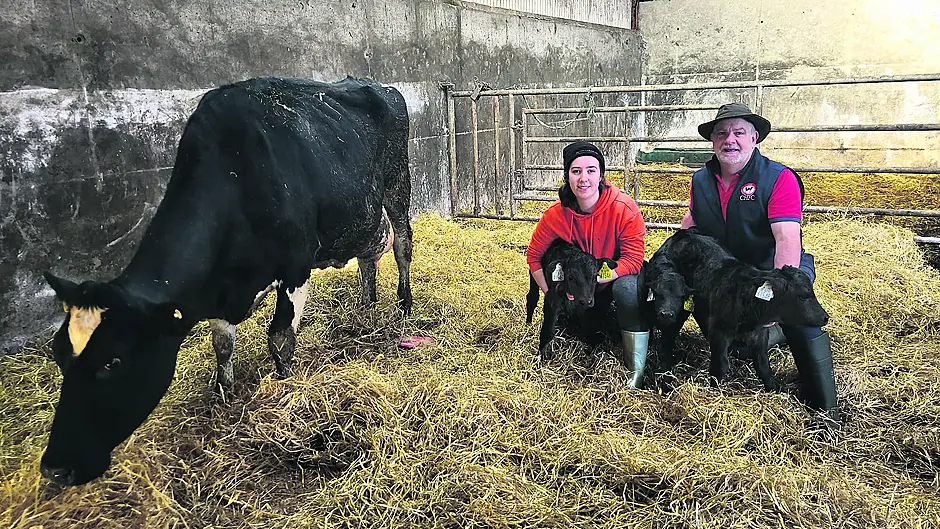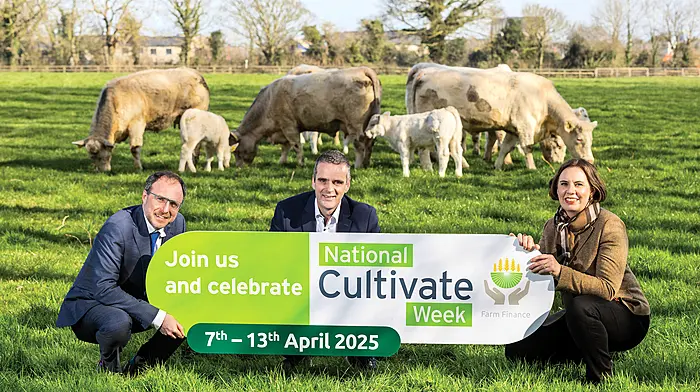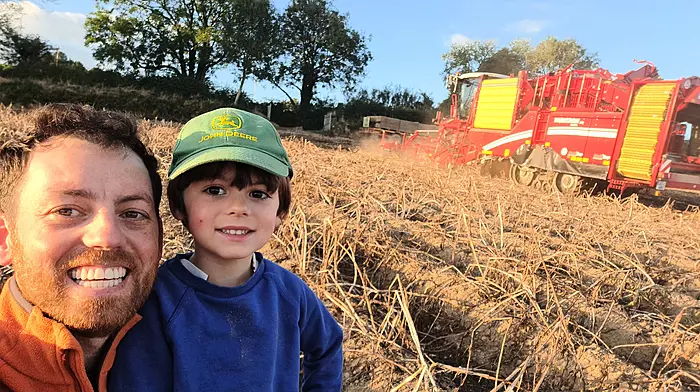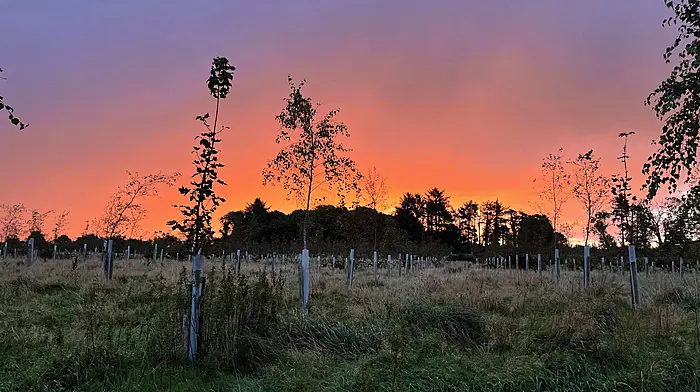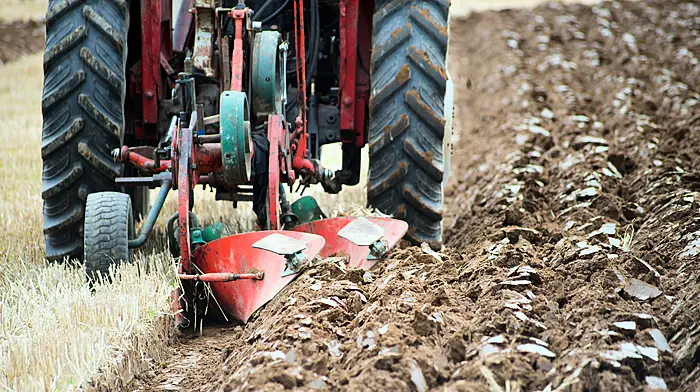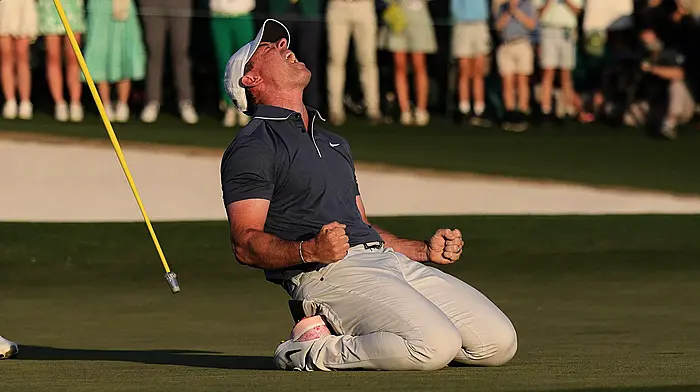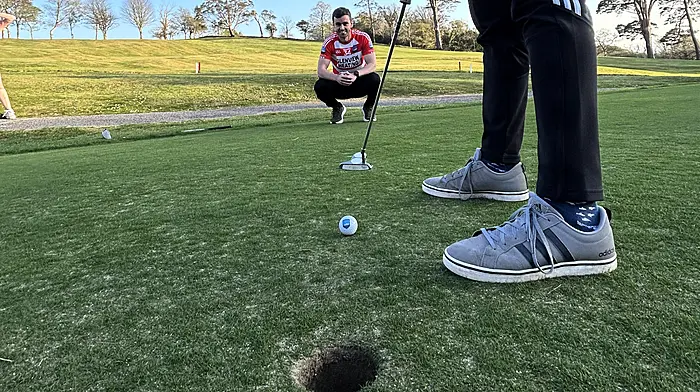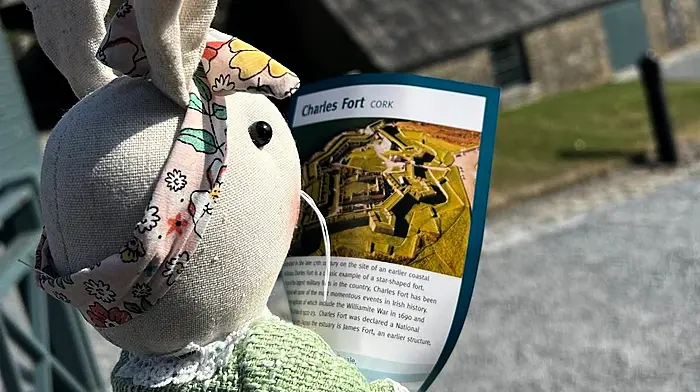BY TOMMY MOYLES
LISSARDA dairy farmer Joe Collins got a surprise during calving recently with the birth of triplet calves.
One of his Holstein Friesian cows, Collinsfort Pim Daffodil EX90 gave birth to two bull calves and one heifer. Sired by his own Aubrac stock bull, the trio were a little unexpected.
‘She was scanned with twins, so I was expecting that,’ explained Joe. ‘When I went to the shed after supper, I could see there was one calf on the ground. The second calf needed assistance because one of its legs was down. I thought we were done then and I was happy out.
But after I got the second calf out, I found the third one lying down behind a cow that had calved the day before. All were healthy and were sucking within half an hour. They’re all really hardy. We never had triplets here before, ever, even going back to my father’s time.’
The January 2014-born cow has been very productive in her time on the farm, calving every January since 2016. Her recent arrivals are the first time she has slipped into February calving.
‘These are her 11th 12th and 13th calves. She had twins in 2019 and 2020 too. She’s a super cow that does the business when it comes to milking too. She’s produced 62,145kg of milk in eight completed lactations and her solids have been 3.78% protein and 3.76% fat.’
Joe and his wife Rosalie have two daughters, Maria and Rebecca farm at Collinsfort, Gurranereigh, Lissarda. Maria is a teacher who is in Australia at the moment and Rebecca is a nurse. She’s just back from Australia and is looking after the calves at the moment.
‘Rebecca is a great help and the nursing background helps in the calf shed too.’
Farming 130ac east of Coppeen, Joe’s land is all in one block and is all owned ground. There he milks 75 Holstein Friesian cows supplying Dairygold. This year is the first in which the herd will be a spring calving only herd. Prior to this he milked all year round but stopped producing winter milk last year.
He keeps a few pedigree Aubrac cows as well.
‘It’s a bit of a hobby. I like them, they’re beautiful cattle. As well as those we keep a few of our own calves and sell as stores or finish them. It gives us different options when it comes to selling.’
He may have to review keeping the calves in future, like many West Cork farmers, he has been directly impacted by changes to the nitrates derogation. His high yielding herd of cows are in Band 3 when it comes to the organic nitrates excretion rates. This means his cows are classed as producing 106kg of organic N/ha/year.
‘We’re governed by derogation now so we won’t be keeping as many beef cattle as before in order to maintain cow numbers. I think we could end up in a situation where we’ll have more grass than we can manage because we won’t have enough stock to eat it. Maintaining enough quality in the grass is going to be difficult. There’ll have to be longer lead in times to these things because there was very little notification last year.’
Joe also built a new slatted tank last year.
‘I did that thinking I’d have loads of room but the ways things with figures changing regularly, no one knows if they’ll have enough.
‘You plan for one figure and it could end up somewhere else. I feel very sorry for the young people trying to do a five-year plan for their farms because its next to impossible.
It’s galling when I think about it. Public servants getting a pay rise of about 10% and we’re going to take a 10.2% reduction and no one will say anything about
it.’
Outside of the farm Joe is busy with the Cork Holstein Friesians club as they are preparing celebrations for their 50th anniversary.

